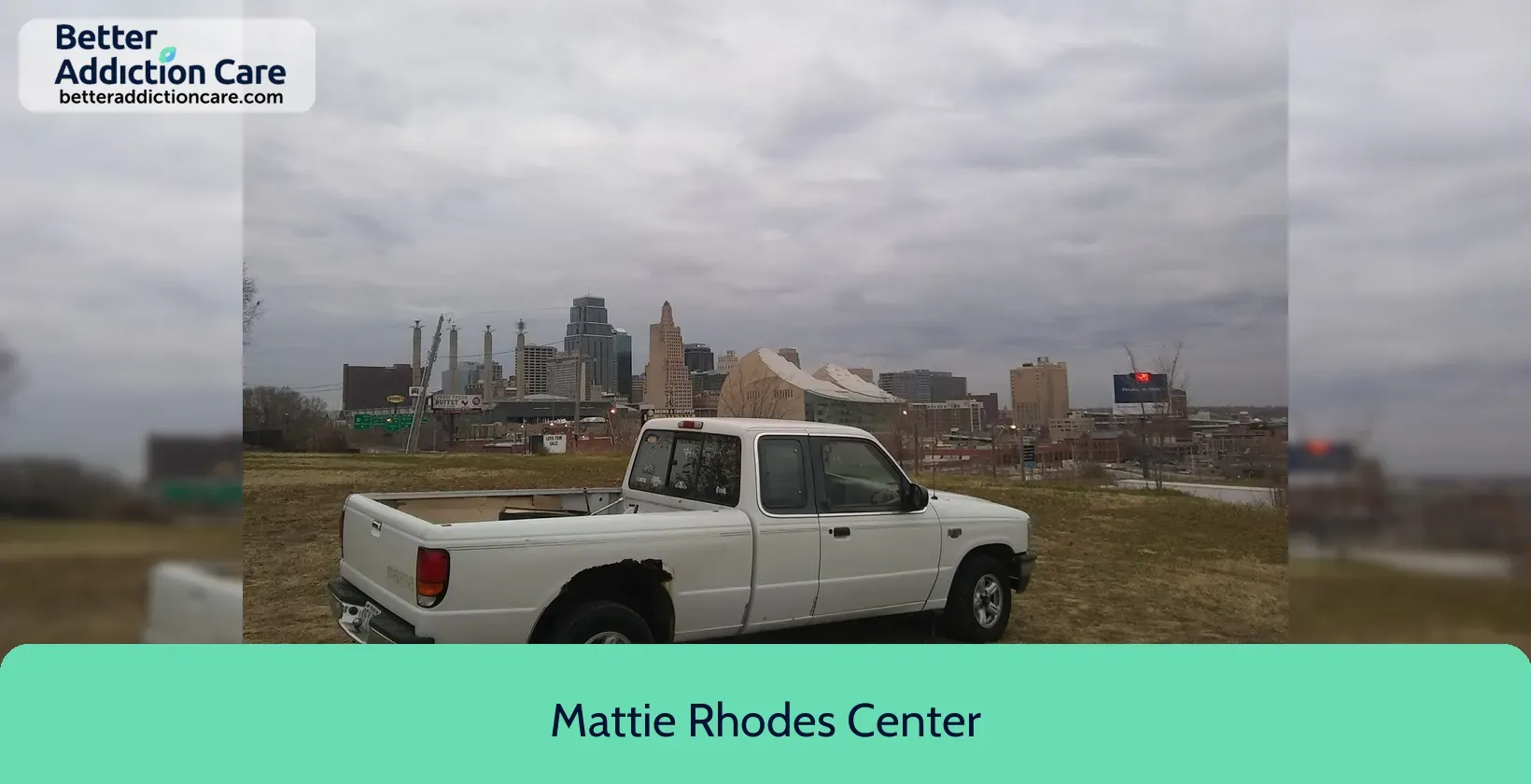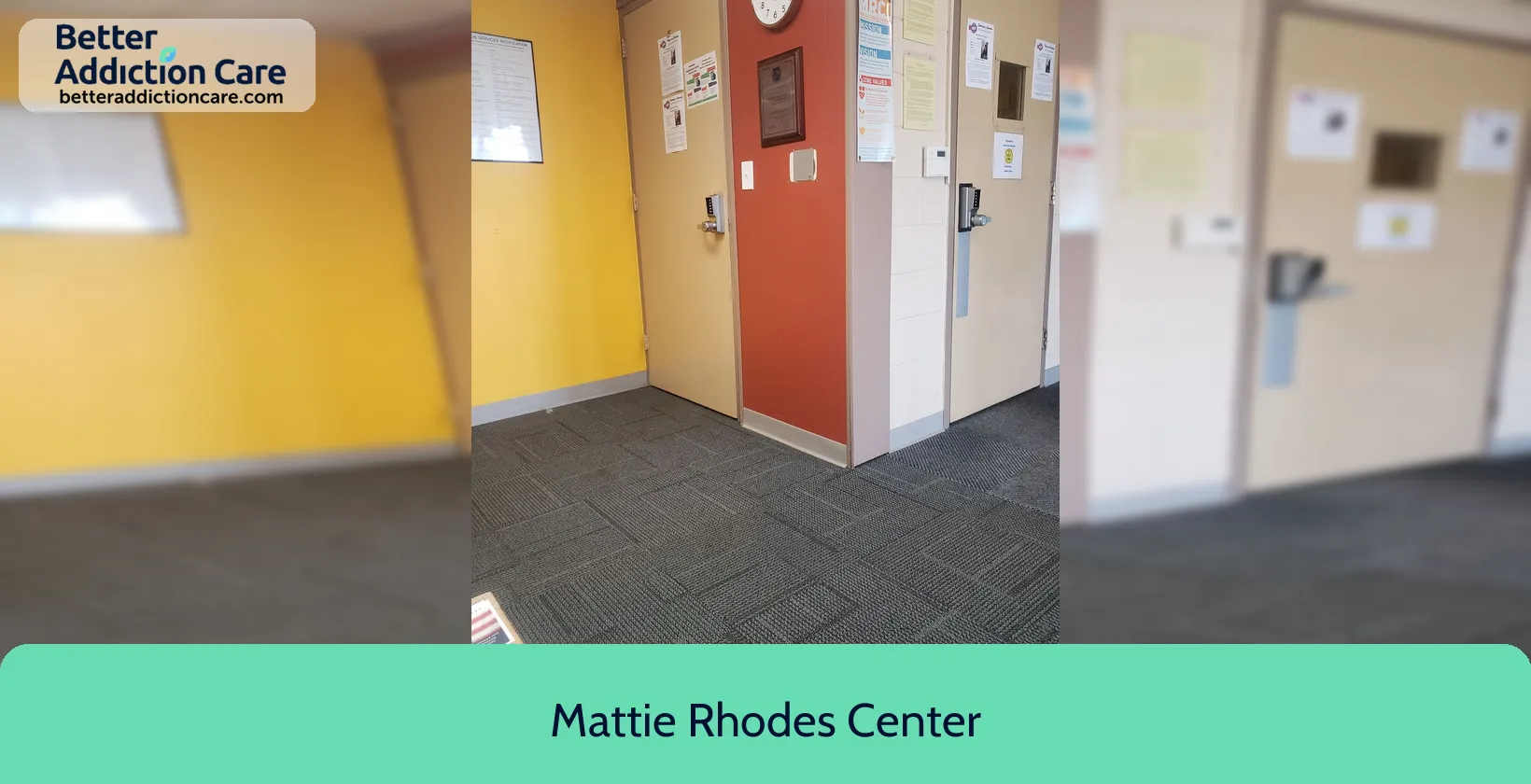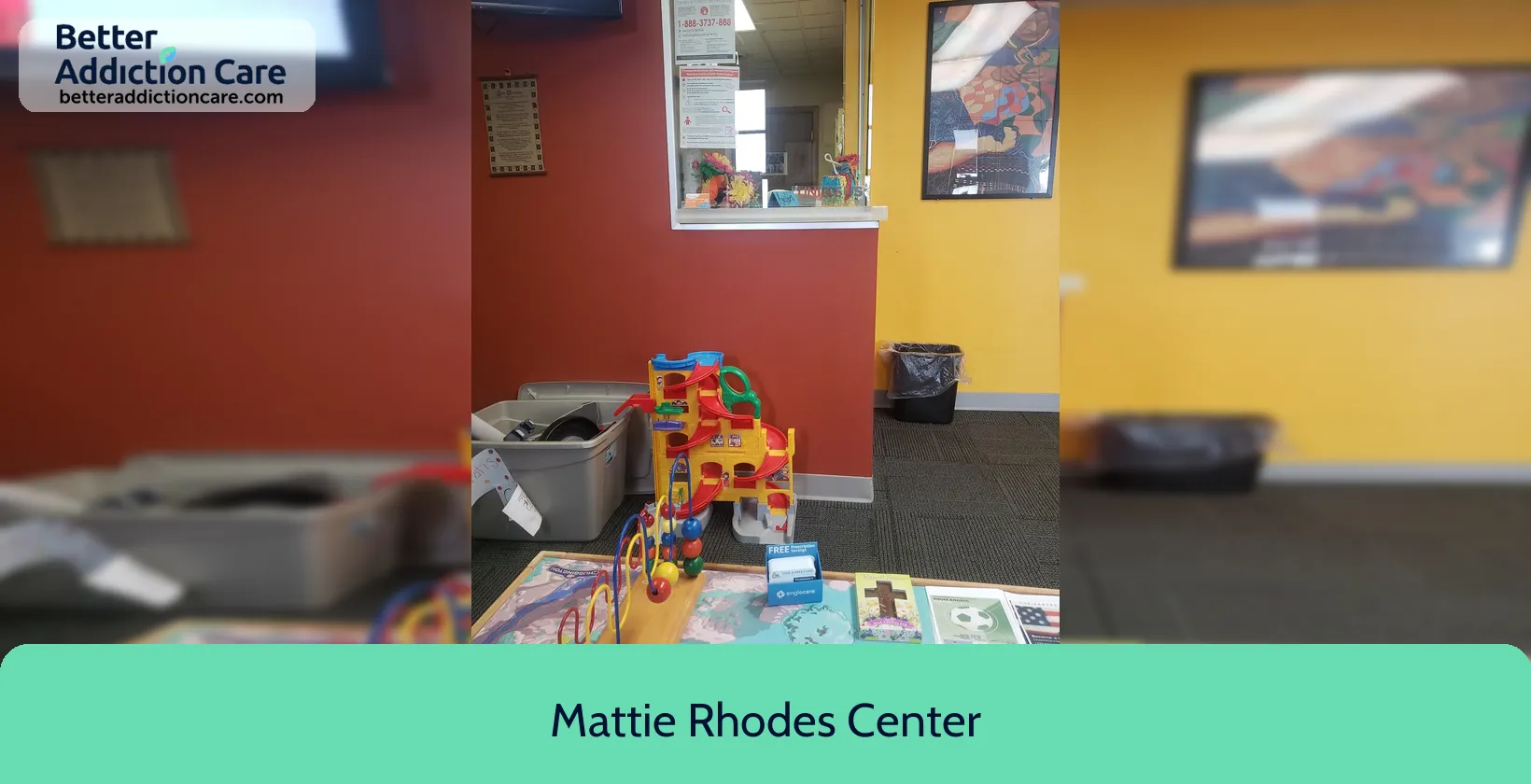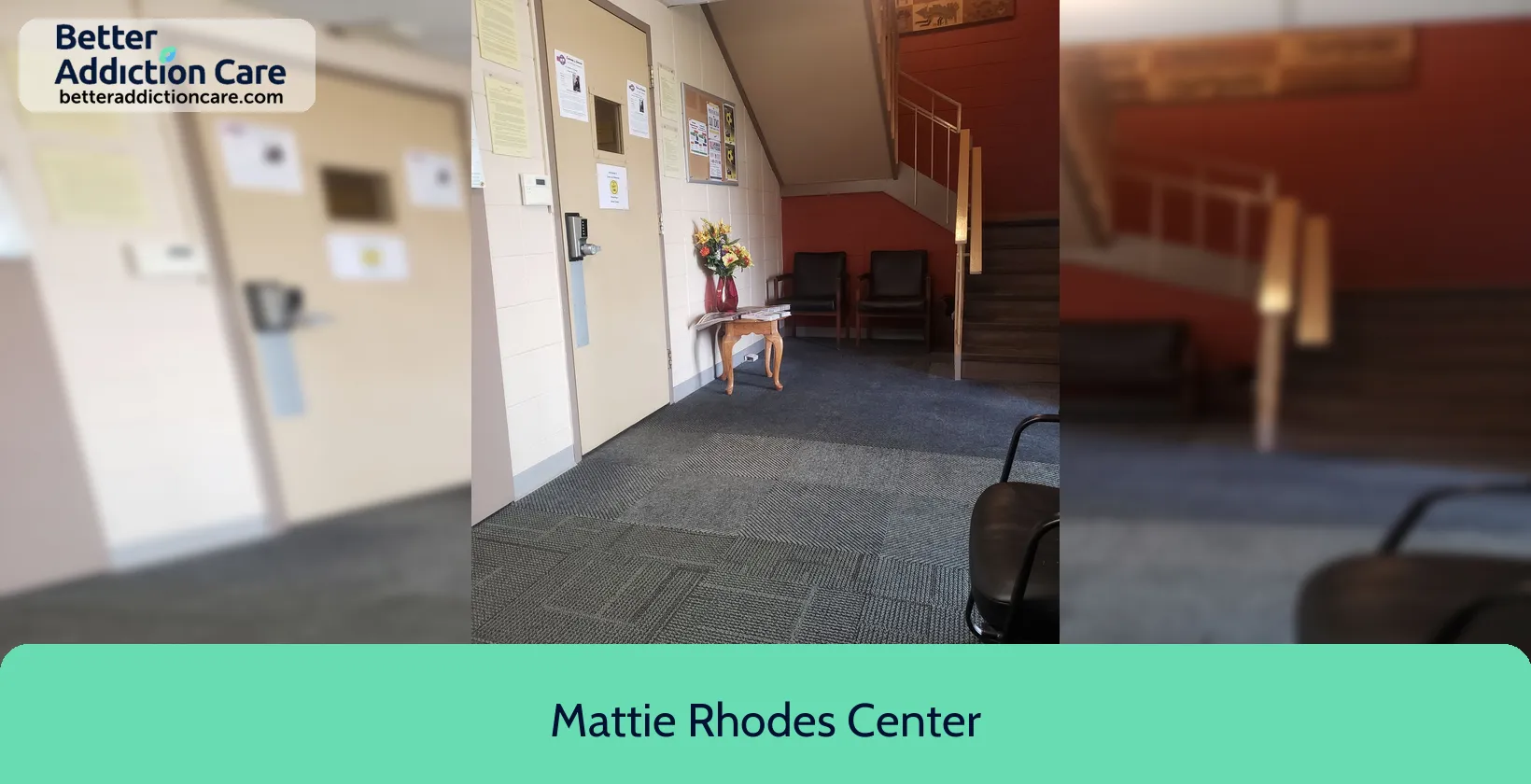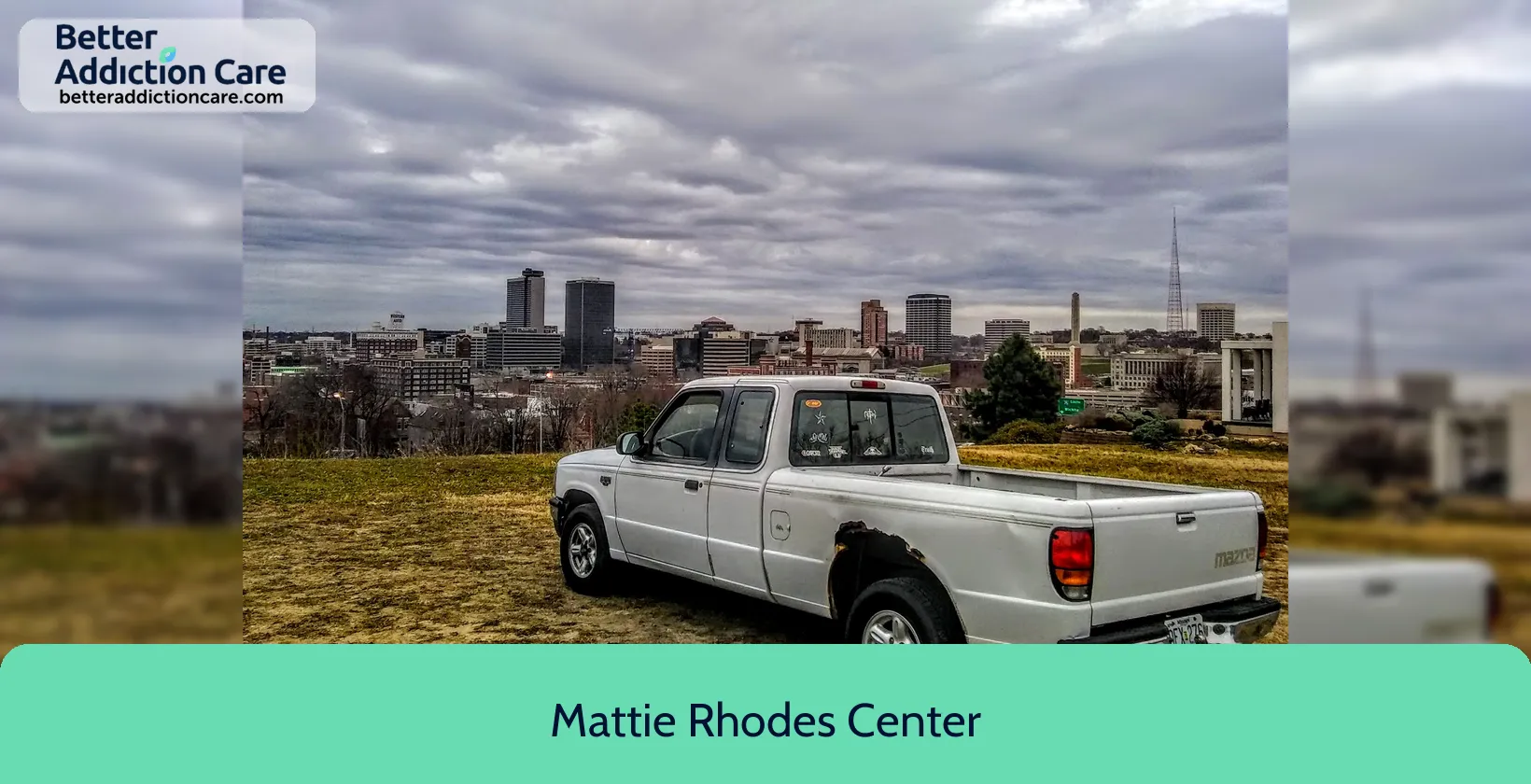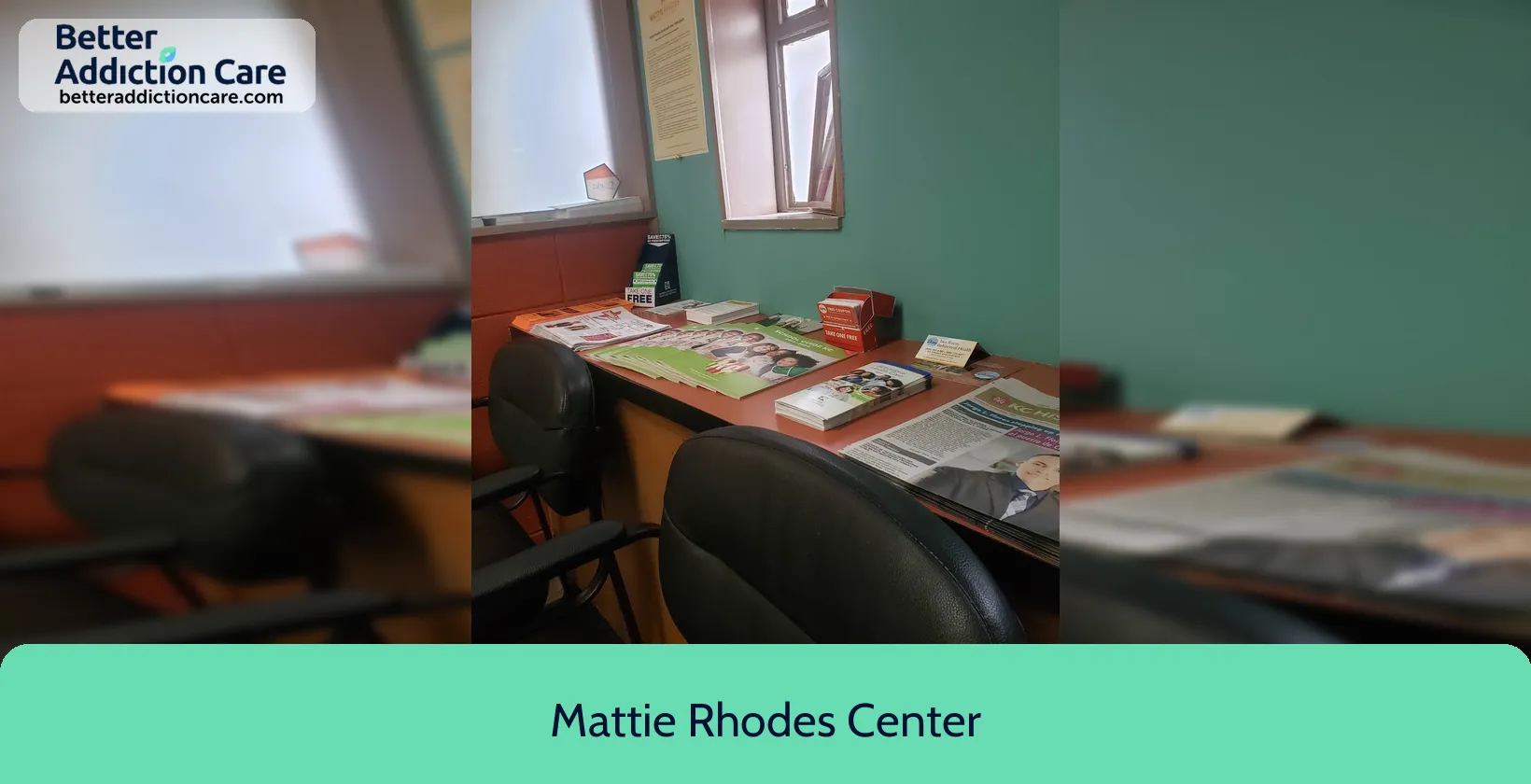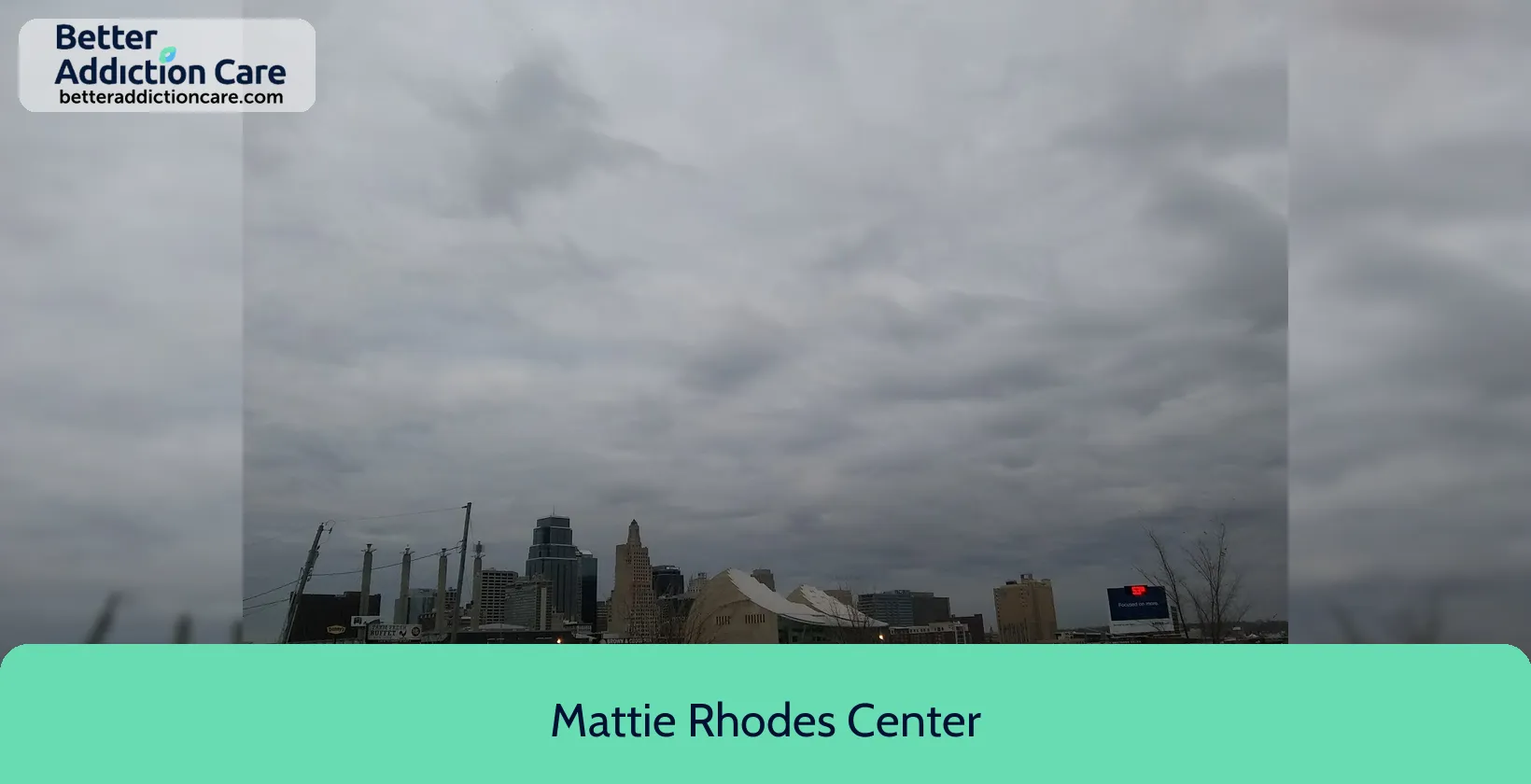Mattie Rhodes Center
Overview
Mattie Rhodes Center is a mental health treatment center for people seeking treatment near Jackson County. As part of their treatment modalities for recovery, Mattie Rhodes Center provides individual psychotherapy, couples/family therapy, and cognitive behavioral therapy during treatment. Mattie Rhodes Center is located in Kansas City, Missouri, accepting no payment accepted for treatment.
Mattie Rhodes Center at a Glance
Payment Options
- No payment accepted
- State mental health agency (or equivalent) funds
- Other State funds
- County or local government funds
- Community Service Block Grants
Assessments
- Comprehensive substance use assessment
- Interim services for clients
- Outreach to persons in the community
- Screening for mental disorders
- Screening for substance use
Age Groups
- Adolescents
- Young adults
- Children/adolescents
- Adults
- Seniors
Ancillary Services
- Case management service
- Family psychoeducation
- Suicide prevention services
- Domestic violence services, including family or partner
- Mental health services
Highlights About Mattie Rhodes Center
6.92/10
With an overall rating of 6.92/10, this facility has following balanced range of services. Alcohol Rehabilitation: 8.00/10, Drug Rehab and Detox: 6.00/10, Insurance and Payments: 6.00/10, Treatment Options: 7.70/10.-
Alcohol Rehabilitation 8.00
-
Treatment Options 7.70
-
Drug Rehab and Detox 6.00
-
Insurance and Payments 6.00
Accreditations
Council on Accreditation (COA):
The Council on Accreditation (COA) is a non-profit that provides accreditation to human services organizations to ensure they meet high standards in service delivery. The accreditation process involves evaluating the organization's policies, practices, and services to meet specific standards.
Treatment At Mattie Rhodes Center
Treatment Conditions
- Alcoholism
- Mental health treatment
- Substance use treatment
- Co-occurring Disorders
Care Levels
- Outpatient
- Intensive outpatient treatment
- Regular outpatient treatment
- Aftercare
Treatment Modalities
- Individual psychotherapy
- Couples/family therapy
- Cognitive behavioral therapy
- Integrated Mental and Substance Use Disorder treatment
- Telemedicine/telehealth therapy
Ancillary Services
Languages
- Spanish
Special Programs
- Clients who have experienced trauma
Get Help Now
Common Questions About Mattie Rhodes Center
Contact Information
Other Facilities in Kansas City

6.83

6.56

7.05

6.65

6.71

6.71

6.80

6.65
DISCLAIMER: The facility name, logo and brand are the property and registered trademarks of Truman Medical Centers - TMC Behavioral Health, and are being used for identification and informational purposes only. Use of these names, logos and brands shall not imply endorsement. BetterAddictionCare.com is not affiliated with or sponsored by Truman Medical Centers - TMC Behavioral Health.
